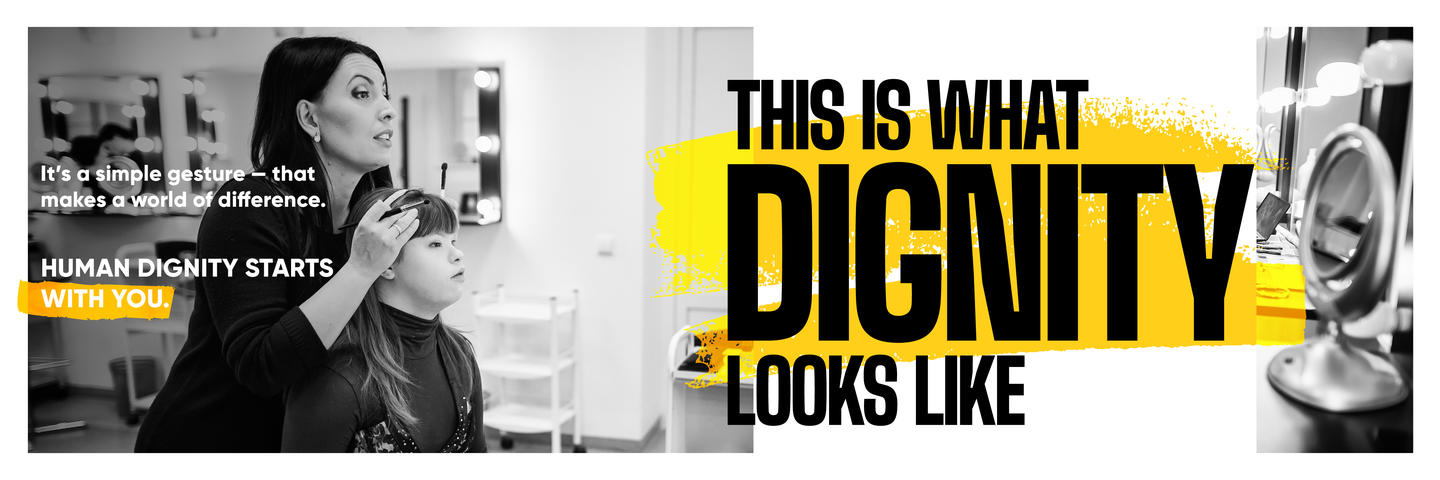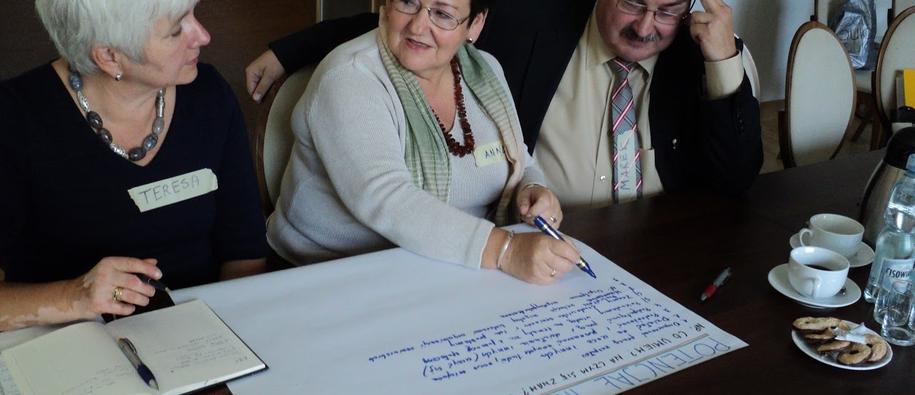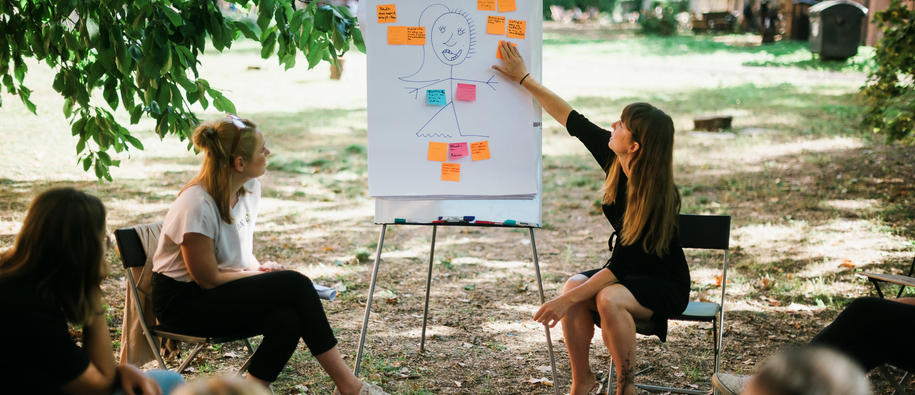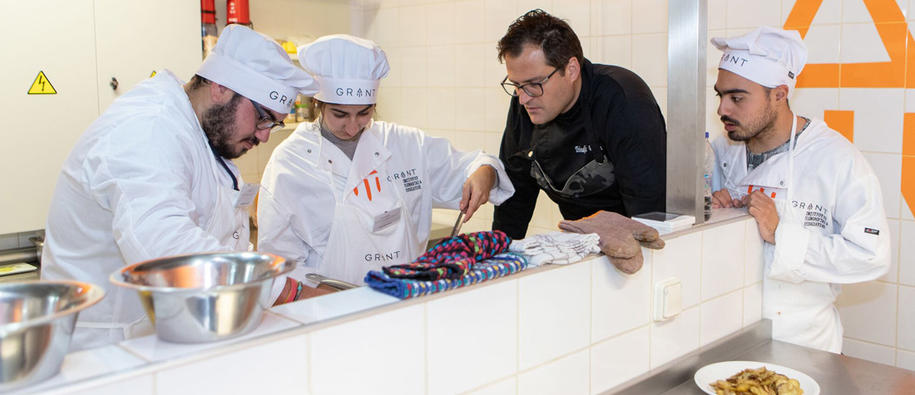Dignity can be in a simple gesture, but it can make a world of difference. However, what it looks like in reality can vary, from person to person and from country to country.
Through the EEA and Norway Grants, Iceland, Liechtenstein and Norway support initiatives that care for the most vulnerable among us. And that starts with the people who want to make a difference for their community, who are committed to shaping our world. Today, we want to highlight some of their stories.
Addressing every person with the respect they deserve
To approach someone with dignity means to address them with respect and equality. But while most people aim to do so, there are still situations in everyday life where we can do better. For instance, do you ever think about how you speak to older people? More often than you think, people use baby talk or condescending language when doing so. While it’s usually not bad-intentioned, it can deprive people of their dignity and individuality.
In Polish, this phenomenon even has a name: ziadurzenie or gerontomowa (or elderspeak in English). And it’s an eyesore for the Polish 4th June Forum association. ‘It’s a widespread phenomenon,’ says Magdalena Skrzydlewska, who is a social communication trainer. ‘Elderly people experience it in family relationships, in hospitals, in nursing homes, in offices. Research shows that frequent experience of "Elderspeak" leads to lower self-esteem, withdrawal from active social life, closing at home, and slower cognitive processes in these people.
That’s why they launched the project Language towards old age - respect in practice. To raise awareness on the issue, this project organises workshops and other activities both for elderly people and the people who work with them. Participants learn more about non-discriminatory speech, and how to respond assertively to baby language and condescending speech. More than 170 elderly persons and people who work with the elderly have already participated.
In addition to the workshops, the project aims to launch an awareness campaign, led by elderly people as ambassadors for their own cause. In this way, the organisation aims to build a network of local institutions, organisations and authorities that work to reduce elderspeak throughout the country.
Do you want to learn more about the project and its activities? Visit the project website.
There’s no taboo in front of the blackboard
Just like the organisation of the project before, the Czech organisation KONSENT believes that communication and standing up for yourself are essential aspects of dignity. But their activities take place in a whole different area.
Their project No taboo in front of the blackboard provides teachers with a clear methodology on how to teach sexual education – and is therefore contributing to the prevention of sexual violence and harassment in primary and secondary schools.
‘Everybody should be living free from danger and we believe that sexual violence is something that is threatening a lot of people,’ says Johanna Nejedlová, director and co-founder of KONSENT. ‘And by providing sex education that also speaks about consent and sexual violence, we are creating a safer environment for both women and men.’
Because schools in the country can decide for themselves whether or how they offer sex education, students’ knowledge level on this subject differs enormously. This leaves many children and young adults to discover the topic in other places. And just because it is such a sensitive and personal subject, this is not necessarily the best way.
Johanna: ‘In our research, we discovered that many teachers don’t know how to teach sex education. But more importantly, we found that they would like to do it but don't have enough information for it. That’s why we are making materials for them.’
The organisation’s five-lesson plan addresses topics such as consent to sexual activity, gender identity, sexual orientation, harassment, and pornography.
Since the beginning of the project, the project team has managed not only to create a methodological basis for teaching sex education but also to launch a successful crowdfunding campaign where they successfully raised more funds than they asked for.
Do you want to know more about this inspiring project? Find out more on their website. Or read our interview with KONSENT’s director and cofounder Johanna Nejedlová.
Jobs for everyone
The sooner you learn something, the better. And – as shown by the previous project – a good education is where it all starts. But that's of little use if you don't have access to it.
Unfortunately, in many countries, people with intellectual disabilities are still excluded from both education and the labour market. And that’s what the Greek Association of parents, guardians and friends of people with autism aims to change. They joined forces with an interdisciplinary team of professionals to develop a study programme in the hotel and catering industries, specifically designed for people with intellectual disabilities.
The result of this study programme is the project Job for all, which enables people to gain work experience through internships in the restaurant and hotel sector. The project includes a training programme to educate and empower both educators and students.
‘The conditions prevailing in the employment of people with disabilities are mainly the negative attitudes of employers, the lack of information about employment opportunities, the lack of appropriate adjustments in the workplace and the prejudice that people with disabilities are not able to work,’ says Pavlos Melissinos, founder of the association.
The project lasts 14 months in total. After that, participants receive certification and are encouraged to apply for a job.
The project helps bring acceptance and equal integration in the local society, explains Irini Kladou, parent of one of the participants: ‘They participate in the community, they are creative, they fall in love, they are looking for a job, they dream. What more can we ask for?’
They participate in the community, they are creative, they fall in love, they are looking for a job, they dream. What more can we ask for?’
Do you want to learn more about this project and its results? Visit the project website for more information and results.
Civil society starts here
These projects are only a few examples of what we can achieve when we work together. They’re supported by Iceland, Liechtenstein and Norway, through the EEA and Norway Grants. Our work in 15 European countries unite us around the values we share: freedom, dignity, equality, human rights, democracy, and rule of law.
Do you want to know more about these and other civil society projects? Visit eeagrants.org/civilsocietystartshere. Or do you have an idea for a project in your region? Visit eeagrants.org/apply-for-funding. Want to get more inspiration? Watch the video here.



